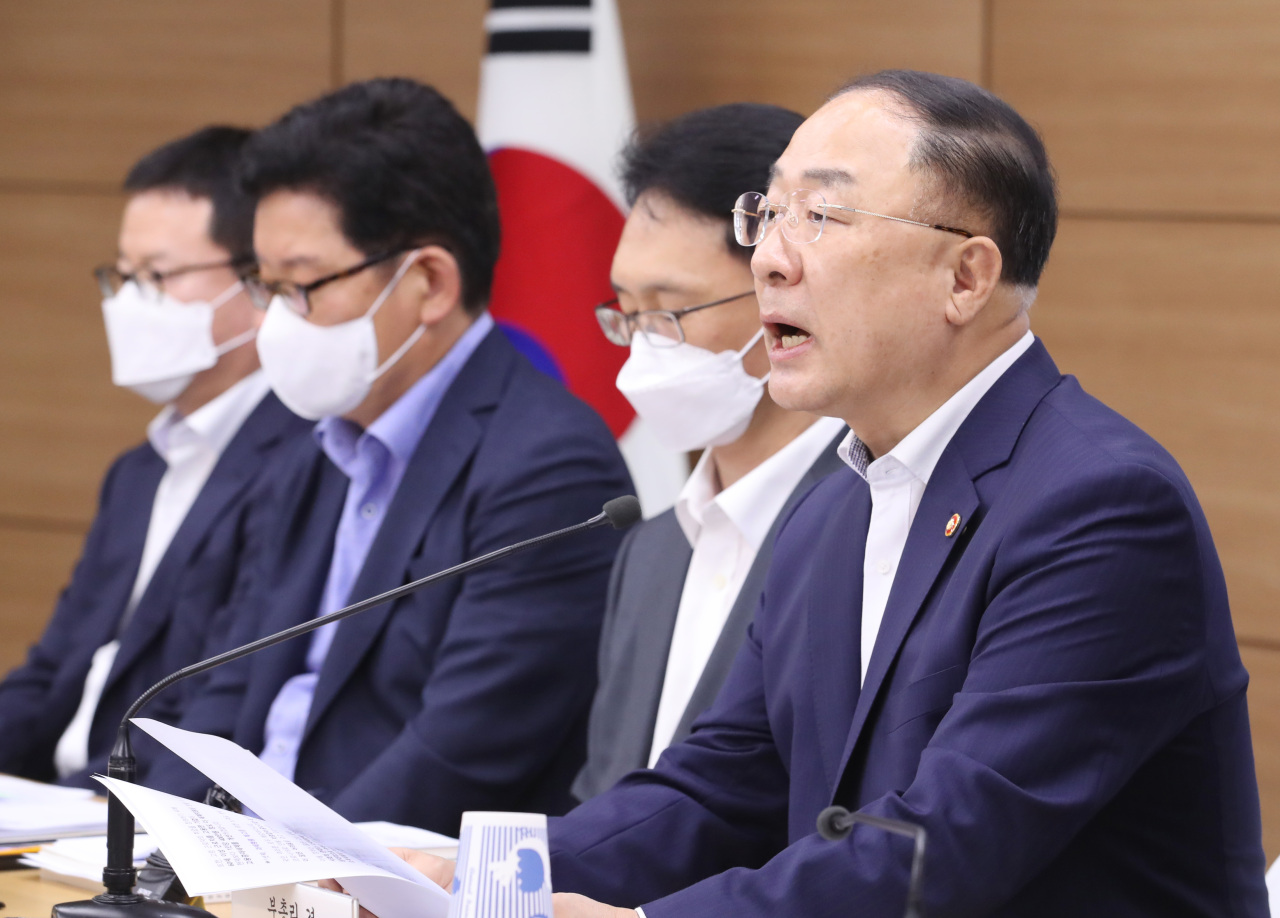S. Korea revises tax rules to respond to post-coronavirus economy
SEOUL — South Korea on Wednesday unveiled a set of revised taxation rules aimed at better dealing with the widening economic gap and altered tax realities under the COVID-19 context.
Its measures will focus on alleviating the tax burden for struggling small businesses, enhancing income tax-paying duties of the affluent group and supporting retail investors.
“Adding to its previous measures to respond to the COVID-19 crisis, (the government) has come up with tax law revision bills to fundamentally change the nation’s tax policies so as to better support people and businesses,” said Deputy Prime Minister and Finance Minister Hong Nam-ki in a press briefing.
According to the fiscal chief, the latest tax revision plan seeks to revitalize the economy amid the economic fallout of COVID-19, expand tax benefits for those in need and to improve the administrative process for taxpayers.
Seoul’s government has already twice revised the Enforcement Decree of the Restriction of Special Taxation Act during the first half of the year to revive stalled consumption and to shore up small businesses. The measures included a tax reduction of up to 50 percent for landlords who voluntarily lowered rental fees and the exemption of value added tax for businesses with yearly sales of 80 million won ($67,000) or less.
It has also approved several sets of additional fiscal injections totaling 277 trillion won, including the recently approved third supplementary budget worth an unprecedented 35.1 trillion won.
While its previous actions focused on urgent relief measures, the latest tax rule revision centered on bringing more fundamental tax system changes, Hong explained.
“(For companies), we have integrated various classifications for investment tax deductions and simplified the requirements for efficiency’s sake,” he said.
“We have also converted the tax support asset evaluation process from positive assessment to negative assessment, seeking to speed up the procedure and expand the range of beneficiaries.”
Companies that have added investments will be offered proportional tax incentives and investments on new growth engine technologies will be given additional tax reductions.
The finance minister also addressed retail investors who flocked into the domestic stock market, keeping the volatility index relatively steady despite the outflow of foreign investors in the wake of COVID-19 outbreak. The phenomenon was dubbed the “Donghak Ant Revolution,” after the anti-foreign Donghak Peasant Revolution in the late 19th century and the term “ant” that is used to describe individual investors.
“Since we announced the general policy directions on June 25, we have figured out ways to support retail investors and to consequently revitalize the local bourse,” Hong said.
The related action plans include the reduction of the securities transaction tax. Starting next year, authorities will gradually decrease the corresponding tax rate, expecting to offer some 3.4 trillion won in tax benefits until 2023.
Also, the government will alleviate the tax burden on small business operators by some 480 billion won per year by raising the standard amount for value added tax evaluation and expanding the range of VAT-free sales.
Businesses that qualify as small and medium-sized enterprises under the related law will be offered another two years of income tax or corporate tax reduction of up to 30 percent.
“In order to promote social solidarity and enhance income distribution, we will increase the income tax rate for the super-affluent group,” Hong added.
As part of such an effort, the government will create a new top-tier tax base of above 1 billion won and apply a maximum income tax rate of 45 percent, up from the current 42 percent cap.
The fiscal chief also denied controversies on the government’s tax hike attempts.
“The government has made the best efforts to come up with a neutral tax revision plan (that does not involve a drastic tax hike),” he said.
“Compared to the national tax income volume that is around 300 trillion won, the consequent tax hike effect (due to the latest tax revision plan) will only be about 5.4 billion won for this year and 67.6 billion won for 2021-2025.”
For more news about the novel coronavirus click here.
What you need to know about Coronavirus.
For more information on COVID-19, call the DOH Hotline: (02) 86517800 local 1149/1150.
The Inquirer Foundation supports our healthcare frontliners and is still accepting cash donations to be deposited at Banco de Oro (BDO) current account #007960018860 or donate through PayMaya using this link.
